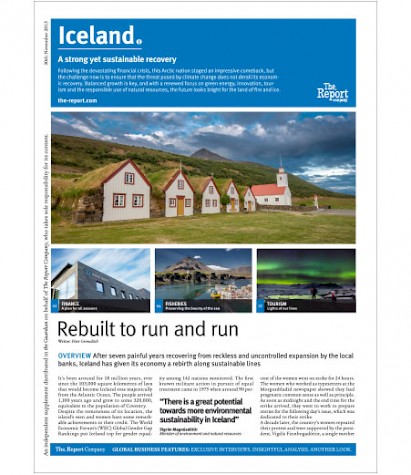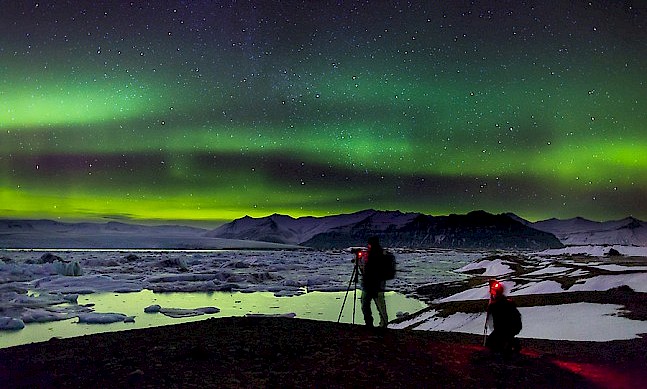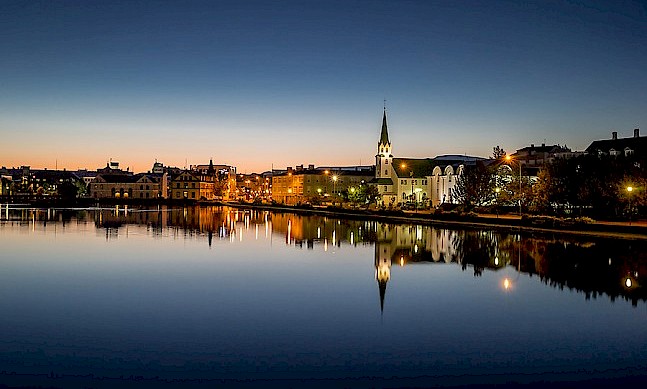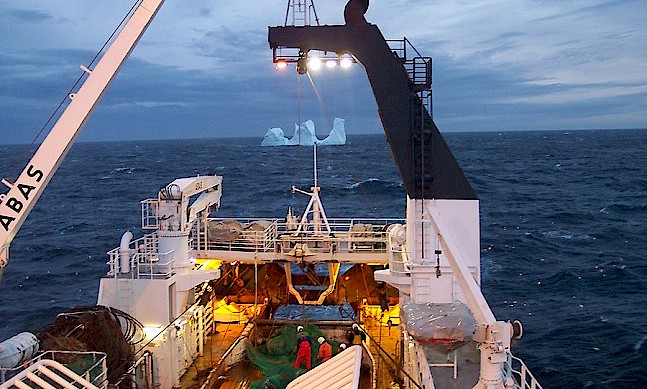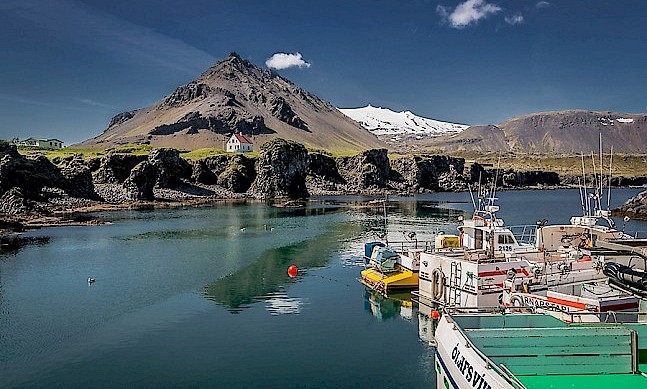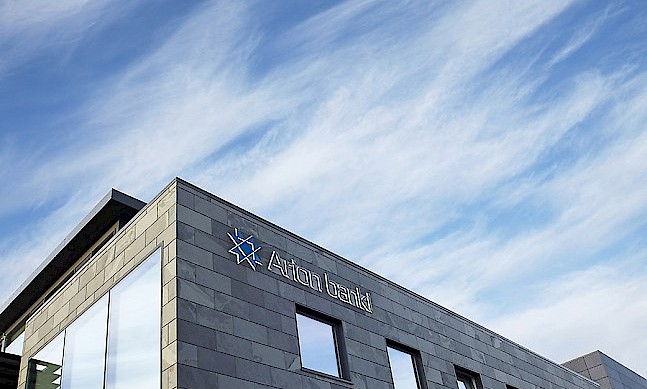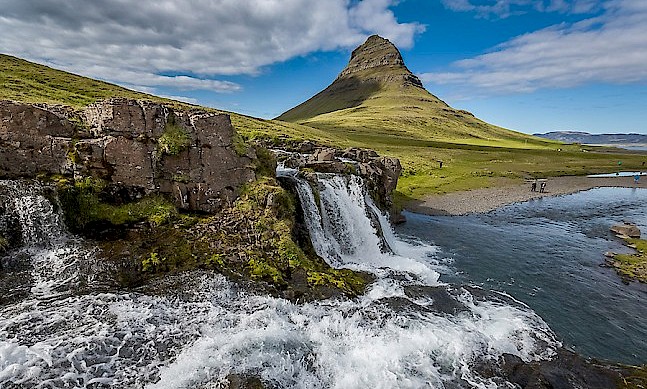Iceland’s science, education and culture minister talks to The Report Company about the role education has to play in overcoming Europe’s current problems, and how science and culture make Iceland an attractive destination for investors and tourists.
The Report Company: You have stated that they key to Europe’s challenges is education. What are the challenges and what solutions can education bring?
Illugi Gunnarsson: Obviously, one of the challenges that Europe is faced with is the change in demographics. There are fewer people in the job market and more pensioners, and we need to increase the productivity of our labour force in order to meet this. At the same time, the demands we have on our health services are increasing. The investment that we make in our education systems and in research will, if we do this cleverly, lead to increased productivity and help us to meet these challenges.
At the same time, we are faced with what I hope is a temporary problem which is the rise of nationalism in Europe, on the back of unemployment and problems with immigration. This is a threat to our civil society and in order to meet that, we need education and we need culture. It is through education and culture that we brace ourselves against these challenges. As art consumers, we are being trained through their work to put ourselves into the mindset and the feelings of other human beings. I think that is the hallmark of a civilised society. Art is probably the easiest way that we can train our population in this vital part of civilised society.
Education and culture are the answer to the productivity problems that we have, and to the challenges that we face in Europe around immigration and nationalism or intolerance.
“Education and culture are the answer to the productivity problems that we have, and to the challenges that we face in Europe around immigration and nationalism or intolerance”Post This
TRC: What room is there for scientific research or advances to be made in Iceland?
IG: When it comes to science and energy, Iceland is in a unique position and has been for quite a long time. The high percentages of our energy use coming from renewable sources is quite remarkable, and when it comes to research and development of the technology here, I think we are faced with a challenge now, which is that because we have already harnessed such a big percentage of the energy resources that we can use. The question now comes, how do we maintain our position on the technical front? Many other nations are increasing their activities, and if you don’t have a big project to work on here in Iceland, how will you maintain and further develop your technology? It is therefore very important for the Icelandic geothermal industry to get themselves into projects all over the world, and that is what they have been doing.
Within our university system, there is a lot of work and research going on, and also what we have which is quite important is the United Nations University Geothermal Training Programme, which I think is very important. One of the important things here is that people come from all over the world to study and go to other countries, having learned their trade in Iceland.
When you look at the environmental challenges that we are faced with, this is what Iceland can in a significant manner bring to the table. We have reduced our own footprint but this is not going to save the world because it is so insignificantly small, but if we can provide technologies and ideas to others, then we will be punching above our weight.
Ultimately, you will not sustain your society based on resources. What you have to do is invest in research and technology in order to further enhance your use of those resources. You have to find different ways to use them. Look at the fisheries. Because of technology changes in the last 20 years, the amount of work for fish per kilo is only a fraction of what it used to be 20 years ago, just because of investment and technology. We are constantly making this resource more valuable through investment in technology.
“We are not an inward-looking society even though we are small. We have experienced that we have always done best when we have been as open as possible”Post This
TRC: What role does culture play in the growth of the tourism sector?
IG: We live in a country with very fragile nature. The further north you go, the more worried you should be about your nature. We have a short summer and a long winter, and there is a limit as to how many people can actually walk around. If you take all of the Icelanders who have been born here since the Vikings first came here, it’s about one million people. That is the number of people who have walked around on this island up until now. Today, we have more than that number of people coming here each year.
If nature is going to be the only attraction, I would be very worried, because there are limits. But culture is not limited. There are a lot of things in our cultural heritage and in our contemporary cultural life that are quite interesting. There are a lot of Icelandic musicians who have been able to carve out a name for themselves abroad and the same goes for the movie industry. If you look back throughout history at the Icelandic sagas and our Viking heritage, all of this if it is properly displayed and used well can be of huge interest for our visitors.
TRC: What is your assessment of the image of Iceland abroad?
IG: I lived in the UK, I lived in London, and you could feel the there was a lot of business activity going through Iceland, but I would have to say that I’m not sure that people had any clear or definite idea about Iceland. I think that the people who know us probably are the other “Scandinavians but other than that Iceland is just a dot on the map; it’s not really in the news.
That did all change after the collapse. People had a vague idea about Iceland beforehand, and whether they now have a correct vision about Iceland or a more informed vision, I’m not sure.
It’s difficult for an Icelander to judge how people see us. But I think how I would like us to be seen is as we are. We have a very good society to live in, it’s a good place to raise your kids, it’s a good place if you want to go out hiking or skiing, and also we have a very open society.
We are not an inward-looking society even though we are small. We have experienced that we have always done best when we have been as open as possible in terms of culture and our economy. In order to preserve what is Icelandic, it is not something you can do by changing ourselves into a museum. The best way to do this is to open up as much as possible, but then be aware of and think about how we for example maintain the language or preserve our customs. What we are is a secure and open society.
“We have shown through the crisis that even though it was of a great magnitude, we have a quite stable society and we were able to get ourselves through it without the fundamentals breaking down”Post This
TRC: What would you like people to know about Iceland?
IG: Obviously, Iceland will never be a huge consumer market. Any investor who comes to Iceland is not coming here to invest in products that will eventually be sold in Iceland. I think that is pretty clear. But there are things here that are really important, such as renewable energy and we have a very good education system and our universities are quite good, which means that there is good access to human resources. Our people are motivated, hard-working and well-educated.
We have shown through the crisis that even though it was of a great magnitude, we have a quite stable society and we were able to get ourselves through it without the fundamentals breaking down. This shows that they are quite robust. When you are an investor investing in a foreign country, the risk associated with the political infrastructure is of huge importance.
Now that we are lifting the capital controls, we are probably seeing the last measures that we needed to take as a response to the crisis. They are the last reminder of the troubles that we had. We have learned quite a lot from the collapse of the banking system. One of the things that we have learnt is that it is very difficult to have a banking system that is 10 times bigger than your GDP. If everything goes well with the abolition of the capital controls, I think that Iceland will be in a very enviable position. If you look at the state finances, this is the third year in a row that we have a balanced budget. We even have a surplus, and we are paying down our debts, and I think that all the fundamentals are there.


